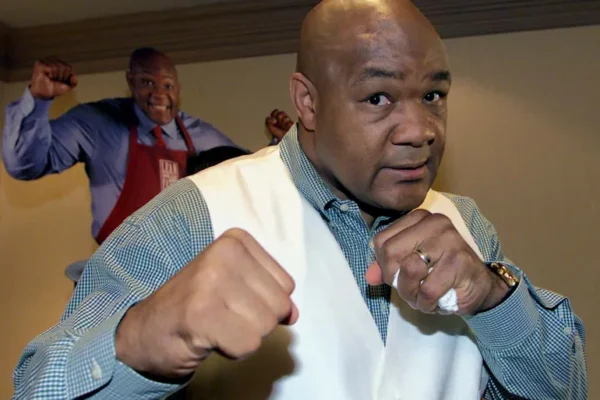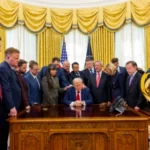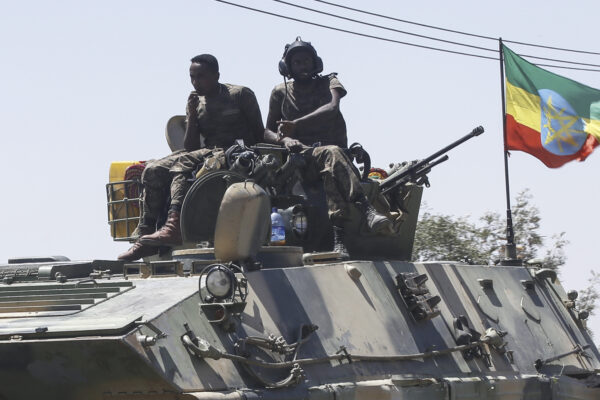
Heavyweight boxing legend George Foreman dies aged 76
He lost his first title to Muhammad Ali in their famous Rumble in the Jungle fight in 1974. But overall, he boasted an astonishing total of 76 wins including 68 knockouts, almost double that of Ali. BBC – Boxing heavyweight legend George Foreman has died aged 76. Known as Big George in the ring, the American built one of the most remarkable and enduring careers in the sport, winning Olympic gold in 1968 and claiming the world heavyweight title twice, 21 years apart – the second making him the oldest champion in history aged 45. He lost his first title to Muhammad Ali in their famous Rumble in the Jungle fight in 1974. But overall, he boasted an astonishing total of 76 wins including 68 knockouts, almost double that of Ali. Foreman retired in 1997 but not before he agreed to put his name to a best-selling grill – a decision that went on to bring him fortunes that dwarfed his boxing earnings. His family said in a post on Instagram on Friday night: “Our hearts are broken. A devout preacher, a devoted husband, a loving father, and a proud grand and great grandfather, he lived a life marked by unwavering faith, humility, and purpose.” The statement added: “A humanitarian, an Olympian, and two time heavyweight champion of the world, He was deeply respected – a force for good, a man of discipline, conviction, and a protector of his legacy, fighting tirelessly to preserve his good name – for his family.” Tributes poured in from others across the sport, with former world heavyweight champion Mike Tyson saying Foreman’s “contribution to boxing and beyond will never be forgotten”. The Ring magazine, often dubbed the Bible of Boxing, described him as “one of the greatest heavyweights of all time”. “[He] will be remembered as an icon of the sport forever.” Foreman was born in Marshall, Texas, on 10 January 1949, and raised along with six siblings by a single mother in the segregated American South. He dropped out of school and turned to street robberies before eventually finding his outlet in the ring. Foreman won the heavyweight gold medal at the 1968 Olympics in Mexico City, aged 19, before turning pro and winning 37 consecutive matches. He lost only five bouts over his career. He beat previously undefeated reigning champion Joe Frazier in Kingston, Jamaica, in 1973 knocking him down six times in the first two rounds. His 1974 Rumble in the Jungle against Ali in Kinshasa, Zaire, now the Democratic Republic of the Congo, remains one of the most famous boxing matches ever. Ali, the older man, was the underdog after he was stripped of his crown seven years earlier for refusing to be drafted into the Vietnam War. Foreman reflected on the legendary fight 50 years later in an October interview with BBC World Service Newshour, explaining that everyone thought he was going to decimate Ali. “Oh, he’s not going to last one round,” the boxer said experts were predicting at the time. Foreman told the BBC he typically would get “real nervous” and have “butterflies” before any boxing match, but that night – it was the “most comfortable” he had felt. But the wily Ali used a tactic that later became known as “rope-a-dope”, which wore out Foreman, causing him to throw out hundreds of punches before Ali unloaded on him in the eighth round and scored a knockout. After a second professional loss, Foreman retired in 1977 and became an ordained minister at the Church of the Lord Jesus Christ in Texas, which he founded and built. He told the BBC his defeat to Ali became the “best thing that ever happened to me” as it ultimately led him to “get my message out” through preaching. He recalled that his preaching started small, on street corners and with friends, then grew. “We began meeting informally at various homes in Houston, and before long, the crowds became too large for most houses to accommodate,” Foreman said on his website. “Eventually, we bought a piece of land and an old, dilapidated building on the north-east side of Houston.” Foreman came out of retirement in 1987 to raise money for a youth centre he founded. He won 24 matches before losing to Evander Holyfield after 12 rounds in 1991. In 1994, Foreman knocked out undefeated Michael Moorer to become the oldest ever heavyweight champion at age 45. He became ad pitchman for his George Foreman Grill, which millions have purchased since it hit the market in 1994, thanks in part to his memorable catchphrase, the “Lean Mean Grilling Machine”. Foreman was married five times. He has a dozen children, including five sons who are all named George. He explained on his website that he named them after himself so they “they would always have something in common”. “I say to them, ‘If one of us goes up, then we all go up together,” he explained. “And if one goes down, we all go down together!’”










